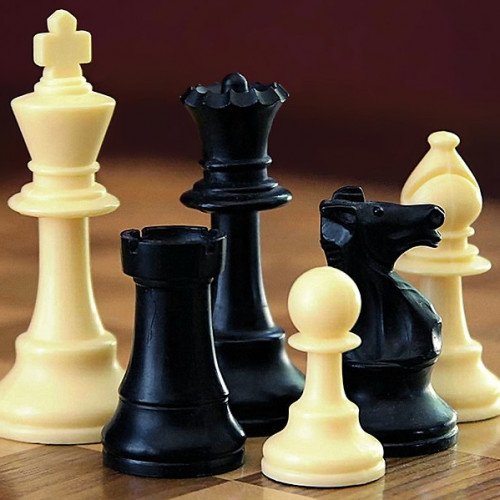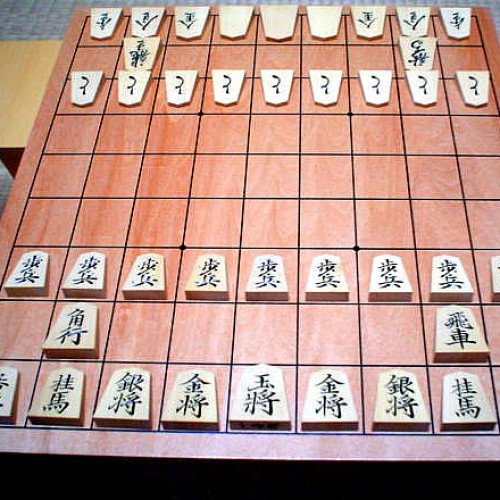CHESS VS SHOGI

CHESS
Chess is a recreational and competitive board game played between two players. It is sometimes called Western or international chess to distinguish it from related games such as xiangqi. The current form of the game emerged in Southern Europe during the second half of the 15th century after evolving from similar, much older games of Indian and Persian origin. Today, chess is one of the world's most popular games, played by millions of people worldwide at home, in clubs, online, by correspondence, and in tournaments. Chess is an abstract strategy game and involves no hidden information. It is played on a square chessboard with 64 squares arranged in an eight-by-eight grid. At the start, each player (one controlling the white pieces, the other controlling the black pieces) controls sixteen pieces: one king, one queen, two rooks, two knights, two bishops, and eight pawns. The object of the game is to checkmate the opponent's king, whereby the king is under immediate attack (in "check") and there is no way to remove it from attack on the next move. There are also several ways a game can end in a draw. Organized chess arose in the 19th century. Chess competition today is governed internationally by FIDE (International Chess Federation). The first universally recognized World Chess Champion, Wilhelm Steinitz, claimed his title in 1886; Magnus Carlsen is the current World Champion. A huge body of chess theory has developed since the game's inception. Aspects of art are found in chess composition; and chess in its turn influenced Western culture and art and has connections with other fields such as mathematics, computer science, and psychology. One of the goals of early computer scientists was to create a chess-playing machine. In 1997, Deep Blue became the first computer to beat the reigning World Champion in a match when it defeated Garry Kasparov. Today's chess engines are significantly stronger than even the best human players, and have deeply influenced the development of chess theory.
Statistics for this Xoptio

SHOGI
Shogi (将棋, shōgi, English: /ˈʃoʊɡiː/, Japanese: , also known as Japanese chess or the Game of Generals, is a two-player strategy board game that is the Japanese variant of chess. It is the most popular chess variant in Japan. Shōgi means general's (shō 将) board game (gi 棋). Shogi was the earliest chess variant to allow captured pieces to be returned to the board by the capturing player. This drop rule is speculated to have been invented in the 15th century and possibly connected to the practice of 15th century mercenaries switching loyalties when captured instead of being killed. The earliest predecessor of the game, chaturanga, originated in India in the 6th century, and the game was likely transmitted to Japan via China or Korea sometime after the Nara period. Shogi in its present form was played as early as the 16th century, while a direct ancestor without the drop rule was recorded from 1210 in a historical document Nichūreki, which is an edited copy of Shōchūreki and Kaichūreki from the late Heian period (c. 1120). Two players face each other across a board composed of rectangles in a grid of 9 ranks (rows, 段) by 9 files (columns, 筋) yielding an 81 square board. In Japanese they are called Sente 先手 (first player) and Gote 後手 (second player), but in English are conventionally referred to as Black and White, with Black the first player. The board is nearly always rectangular, and the rectangles are undifferentiated by marking or color. Pairs of dots mark the players' promotion zones.